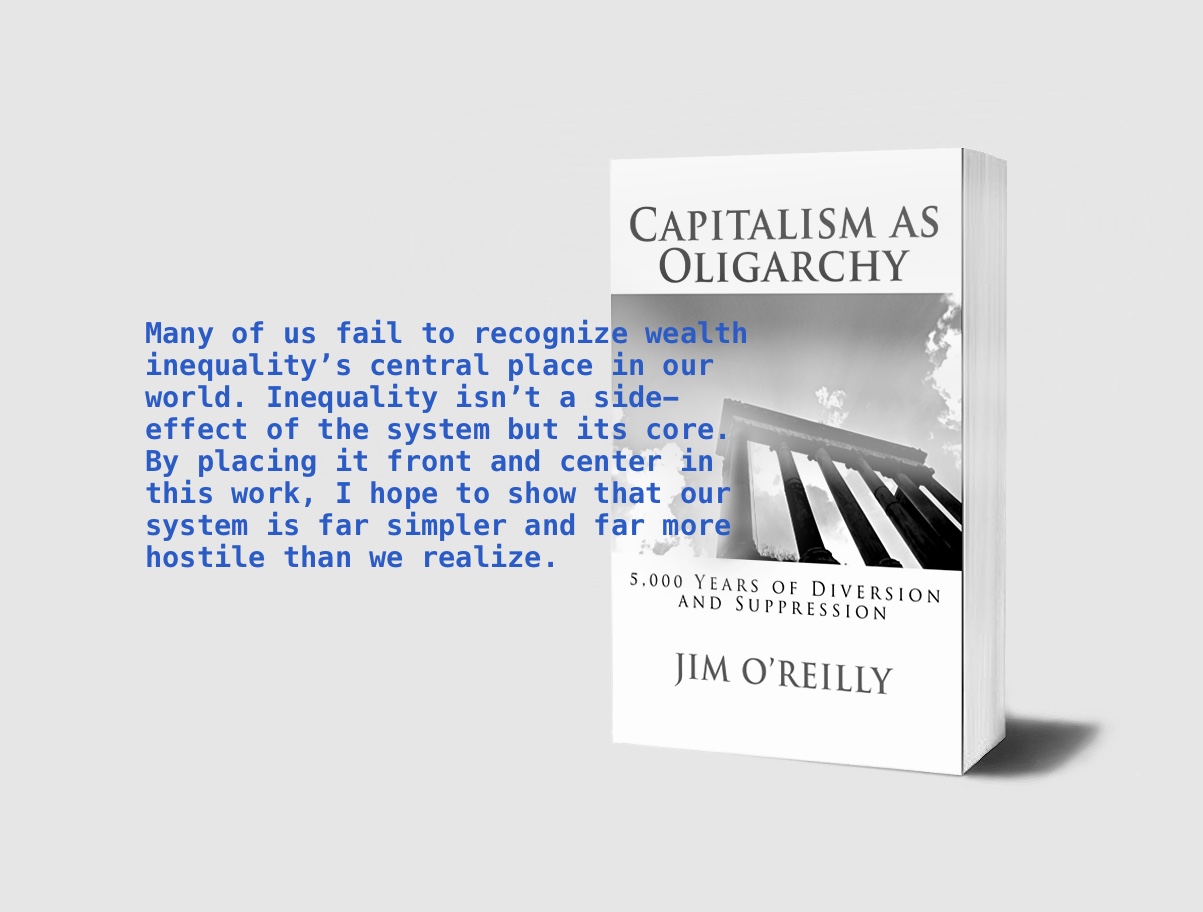Labor competition – a downward cycle of desperation
We live in a world of global mass production that, driven by the gravity like forces of economies of scale and scope, has resulted in ever larger conglomerations of corporate power. Fully 40% of global revenue is controlled today by just 500 corporations and ever rising technologies and efficiencies are permitting them to produce with ever fewer employees and at ever lower skill levels. The industries these corporations control – food, clothing, transportation, energy, banking, and so on – are the most profitable and important to human welfare. The problem for the great mass of human beings is that if you’re not connected into one of these critical industries, what are you going to sell? How do you live? Unless you’re a near genius capable of creating a new product or service, i.e. something not already figured out by the immense research divisions within the giant corporations themselves, you’re coldly funneled into a never ending downward cycle of desperation.
Which brings us to yesterday’s Thomas Friedman article in the New York Times. Friedman’s a spokesman for a wide swath of elite opinion that revels in the combat of competition and glories in what is little more than a Nietzschean cult of the Superman. We’re a budding world of freelance PHD’s, he tells us, that’s “poor, hungry, and driven”. Only the best can make it; good isn’t good enough, and average is economic extinction.
… there is only “good” “better” and “best,” and managers and entrepreneurs everywhere now have greater access than ever to the better and best people, robots and software everywhere. (E)ven good might not cut it anymore and average is definitely over.
Like a Roman senator of old, Friedman sits in the Coliseum and marvels at the competition. In their desperate fight to live, his PHD’s are forced into freelance bidding contests where the winner gets a few hundred bucks.
Someone is looking for a designer to design “a fully functioning dune buggy.” Forty people are now bidding on the job at an average price of $268. Someone is looking for an architect to design “a car-washing cafe.” Thirty-seven people are bidding on that job at an average price of $168. Someone is looking to produce “six formulations of chewing gum” suitable for the Australian market. Two people are bidding at an average price of $375.
Notice the desperation, not only in the bid prices but in the products being considered. Can anyone believe that our 21st century world needs another dune buggy, a car washing café, or six new formulations of chewing gum? Can a system which requires such effort in order to live be sane?
The world is not as Adam Smith wrote, and never really was. One could possibly design a thought universe in which capitalism is a viable moral system but it’s never existed down here on planet earth. Friedman’s glorification of the life and death labor competition that’s the inevitable outcome of pure oligopoly capitalism is revolting. As is the Nietzschean morality of his fellow travelers around the world.


Lily Tomlin & VI Lenin are right. You can’t make this stuff up.
More seriously, what Friedman wants is not a hyperconnected world, but a disconnected one. The prey class’s primary connection to society, money, is severed by destroying their jobs. Their sole connection to society will be as competing slaves of the predator who owns them. Oh – but the elite facing competition when their games start hurting them? No, never, then the nanny state must preserve our parasites at all cost.
Digression: I’m forgetting my general topology, but there’s a mathy word for that – spaces that will become disconnected if one or a few points are removed. Almost disconnected? Whatever.